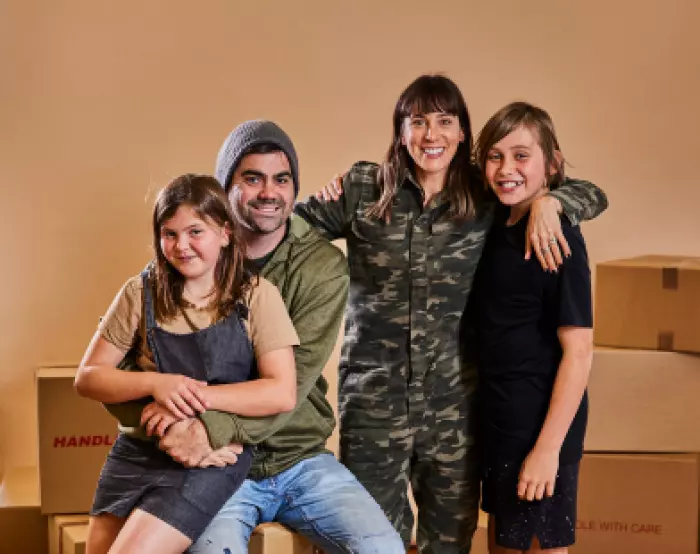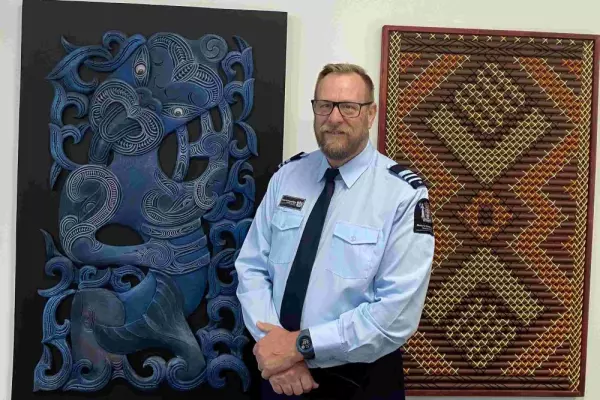It’s becoming harder than ever to know what tomorrow will bring and no one understands that better than Lucy Wildman, the designer and co-founder of Little Flock of Horrors.
The company makes merino wool baby clothing that's as kind to its wearer as it is to the planet.
Wildman, who founded the clothing business with her husband Fran Frost in 2010, says she’s used to change and having to think far ahead due to how fashion seasons work.
“The calendar is so far in advance because we start designing so far ahead.
“We'll start designing our winter 2024 collection in September, so you really have to be quite organised – which I’m not, as I skew towards the creative side of things,” she says.
Thermoregulation properties
Wildman started Little Flock of Horrors after her toddler son Iggy began having sudden, extreme seizures which were later diagnosed as febrile convulsions that are caused by irregular temperatures.
Wildman says she was already familiar with the thermoregulation properties of merino from her involvement in snow sports – which included a decade working in the United States – and knew the benefits of merino wool for regulating body heat across different seasons and weather.
With few options on the market, Wildman began making clothing for her son, purchasing leftover merino fabric from a mill in Otara. Her son’s seizures steadily improved and his febrile convulsions ended.
“It’s really cool that there's a natural fabric that can do that,” she says. “Other natural fabrics like cotton are great, but they just don't have those amazing properties that merino does.”
Taking on NZ
Little Flock of Horrors got off the ground when Wildman and Frost concentrated all their efforts into exporting their business into North America and managed to launch a series of merino kids' clothing at a trade show in the US. From there, the business grew quickly.
“We had a couple of showrooms there and quite a big presence in New York,” she says. “But in 2014, we decided to bring everything back to NZ because we wanted to really focus on the market here.”
Once back in NZ, Little Flock of Horrors started close to home – literally in Wildman and Frost’s garage.
“Not like Apple kind of level – I wish,” Wildman laughs. “But the start in our garage was pivotal.”
The garage residence remained while the business went through different growth stages before they moved into a retail store in the south Auckland suburb of Papakura.
Wildman says the retail store has become “a staple” in the area and she loves getting to know her customers.
“We've also grown hand in hand with our retailers within New Zealand, which has been really cool,” she says. “There’s now over 50 nationwide retailers that we sell the range to.”
She frequently asks expectant parents to send her photos of their babies wearing their Little Flock of Horrors clothing when they’re born and is always delighted when a photo comes through.
Pandemic blues
Wildman is used to juggling all the things that come with running a small business operating on two completely different sides of the world for the past twelve years.
But she says the pandemic business environment has completely shaken any certainty she used to have pre-covid – especially when it comes to the headaches of freight and shipping.
Due to the last merino mill shutting down in NZ several years ago, Wildman now has her merino garments made overseas and then exports them into NZ, Australia and North America.
She says freight has reached the “worst it's ever been” at this point in the pandemic. The extra financial burden of extremely high shipping costs has been made easier to swallow only because Wildman and Frost are currently having to deal with one season of clothing per year.
Covid-19 has also made it harder to build better relationships with customers, she says.
“All of this work that we’d done to create really transparent relationships with people, suddenly had this weird wall up. We’ve had to be really good with our comms online.”
2023 and beyond
Going forward, Wildman says she’s keen to show both the NZ and North American markets that merino is “so much more” than just a winter fabric and can be worn all year round.
“People are pretty good when it comes to wearing it in winter and how to layer it – they’re a lot more educated about it than a few years ago – but we’ve still got a lot of education to go.”
She says she’s enjoying being a more established business after over a decade in the fashion industry.
“The great thing about being a bit more established is that you're really confident in where your brand sits and what you kind of stand for.
“That's quite reassuring because you can always come back to those fundamentals.”
Wildman doesn’t have a favourite design she’s come up with.
“I think that's what makes me a good designer,” she muses. “It’s what keeps me on my toes because if you say this is our best collection ever and then it doesn't sell, then what they're saying about you?”
“I’m always looking onto the next one.”














